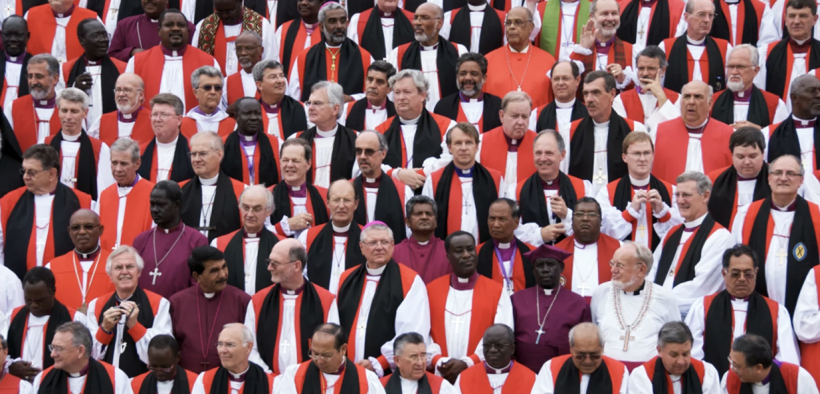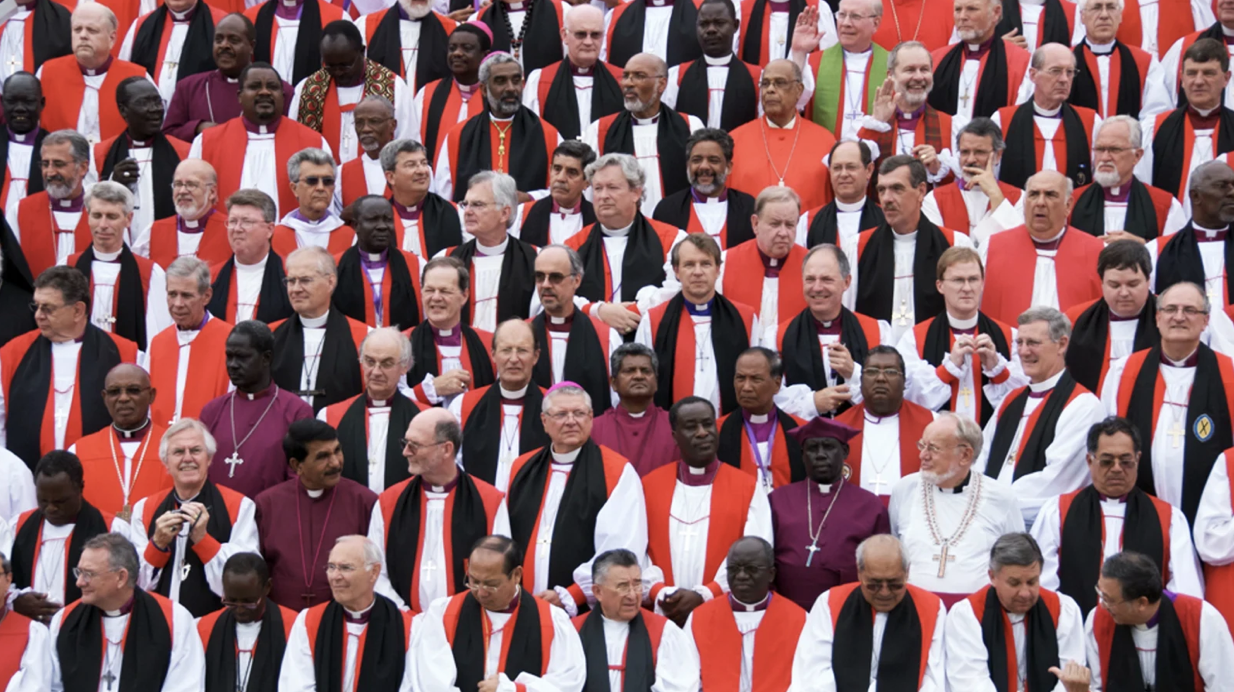Same-Sex Marriage Sparks Divisive Debate at Twice-Delayed Lambeth Conference

LONDON (RNS) — Anglican bishops from all over the world began the Lambeth Conference this week amid a furious conflict over same-sex marriage and a scramble by the archbishop of Canterbury and other church leaders to defuse it.

The conference, meeting for the first time in 14 years, was supposed to be an attempt to bring the Anglican Communion together—to pray, listen, and discuss issues that affect the church and the world, such as discipleship, climate change, and poverty. More than 650 bishops registered to attend, including more than 100 from the Episcopal Church. They represent some 85 million Anglicans worldwide.
But outrage erupted in response to documents produced in advance of the conference, which runs through Aug. 8. Some in the liberal wing of the church opposed a reference to the entire Communion being wholly opposed to same-sex marriage.
In response, the Archbishop of Canterbury Justin Welby revised the statement and made a last-minute U-turn on how the talks will be conducted.
According to the original documents, called “Lambeth Calls,” marriage is defined as “between a man and a woman,” and the documents go on to say: “It is the mind of the Anglican Communion as a whole that same-gender marriage is not permissible.” The documents also stated that “legitimizing or blessing same-sex unions” cannot be advised.
Access to MinistryWatch content is free. However, we hope you will support our work with your prayers and financial gifts. To make a donation, click here.
Bishops and laity in favor of same-sex unions were outraged, among them Bishop John Harvey Taylor of Los Angeles, who said the statement “divides, hurts, scapegoats and denies.” Bishops from the Church in Wales said the call “undermines and subverts the dignity of an integral part of our community, rather than affirming them.”
The conflict deepened when Bishop Kevin Robertson of Toronto, who was part of the team that wrote the “Lambeth Call on Human Dignity,” said on Facebook that the wording did not represent anything that the group had produced.
On Tuesday (July 26), the Lambeth Conference revised “Lambeth Calls” after Welby met with the group. The revision now says, “Many Provinces continue to affirm that same gender marriage is not permissible.”
It also says: “Other Provinces have blessed and welcomed same sex union/marriage after careful theological reflection and a process of reception. As Bishops we remain committed to listening and walking together to the maximum possible degree, despite our deep disagreement on these issues.”
The document kept a reference to a 24-year-old previous Lambeth Conference resolution that states that the “legitimizing or blessing of same sex unions” cannot be advised.
Another revision allows bishops to vote against proposals put forward in the documents. Yet another one allows them to state: “This Call does not speak for me. I do not add my voice to this Call.”
The issue of sexuality and in particular same-sex unions has been splitting Lambeth Conferences for decades, with the divisions so deep that Welby canceled the planned meeting in 2018. Two years earlier, a group of Anglican primates from around the world criticized the Episcopal Church USA for approving same-sex marriages. Since then, the Scottish Episcopal Church has decided to allow same-sex marriage and the Anglican Church in Wales has voted to offer special blessings to same-sex married couples. The Church of England still bans same-sex marriages.
Bishops from Rwanda, Nigeria, and Uganda are boycotting the conference.
The archbishop of Canterbury told a press briefing that this year’s conference would address the “great challenges that the next 30 or 40 years will impose upon the vast majority of Anglicans, especially those in areas of climate fragility, and of political and other fragility.”
“Without ignoring those things on which we deeply disagree, I pray that we will approach this gathering with an even deeper sense of what unites us: the love of Jesus Christ and his calling to serve God’s world.”
The deliberations of the conference will result in “Lambeth Calls”—declarations and affirmations from the bishops to member churches. The word “resolution” has been dropped to avoid giving the impression that the conference has the power to make legally binding decisions.



